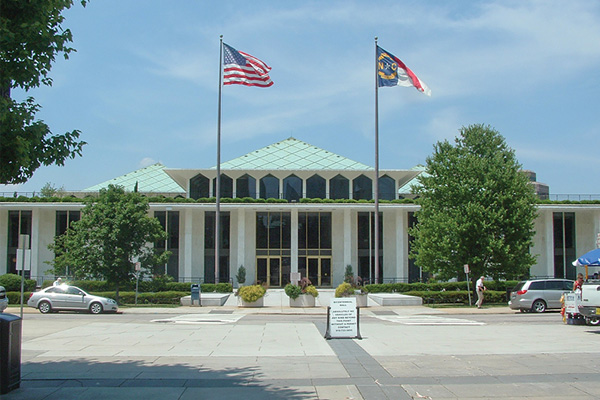It looks like about 5 million North Carolinians may be getting a check from the state this year.
Last week, President Pro Tem of the NC Senate Phil Berger floated out the idea of a tax refund check.
This week that idea became House Bill 74 and has been passed by the Senate Finance Committee. It is making its way through the legislative process and is expected to be passed by the Senate next week. With the support of both Berger and Speaker of the NC House Tim Moore, there is little doubt the bill will pass the legislature.
The bill is entitled, “An Act to Send a Tax Refund to Taxpayers with a Net North Carolina Tax Liability for 2018 and Make Other Conforming Changes.”
Berger said that the bill would send a tax refund of a maximum of $125 to an individual taxpayer and $250 to a couple that filed jointly. It has been reported that about 90 percent of those who receive checks will receive the full amount, and for about 350,000 taxpayers it will amount to a full tax refund.
This is all part of the budget battle between the Republican-led legislature and Democratic Gov. Roy Cooper, who vetoed the state budget that passed both chambers with bipartisan votes.
The Senate has the votes to override the governor’s veto on the budget, but the House, where a total of seven votes are needed, is, according to Moore, “extremely close” but not quite there yet. Moore has the veto override vote placed on the agenda for every session, which means the Democratic representatives who support Cooper’s veto can’t miss a session. And according to media reports, the Democrats are getting tired of being in Raleigh all the time.
The disagreement between Cooper and the Republican legislature is not actually about the budget. Cooper wants Medicaid expansion included in the budget. The Republican leadership offered to hold a special session on Medicaid expansion but refused to include that as part of the state budget.
The tax refund bill is one result of that standoff.
Berger and Moore explained that the state had a surplus of $900 million at the end of the 2018-2019 fiscal year, which was much higher than expected. About $640 million of the surplus was allocated in the budget that Cooper vetoed. The proposed tax refund will use about $680 million of the $900 million surplus.
But since the state currently has no 2019-2021 budget, allocations are being made based on the 2017-2019 budget, which means that $900 million surplus is sitting in the state’s coffers
Moore said, “My experience is you spend the money better than the government does. We propose to send that surplus back to the people who earned it.”
The tax refund bill should sail through the legislature, which puts the ball squarely in Cooper’s court. Cooper has held the Democratic minority in the House together so far to block the veto override, but voting against giving the taxpayers of the state a check is a tough political move.


Or, perhaps they could use the “surplus” to shore up our underfunded public employee pension system? Perhaps they could even pay down the nearly $18,000,000,000 NC owes in various public debts?
They tried to do just that with a budget that Gov. Cooper vetoed…
From the time our infant child was /became a tax deduction, we gave had to PAY state income tax. Always got a fed. Return. This past year it cost us over a thousand dollars. I’m retired, wife still works, I say,”GIVE ME THE MONEY”. Give me the money !
As another note, NC ranks 3rd behind ID and WY in terms of debt owed per citizen. At $4,115 owed per citizen we are doing quite well compared to 50th-ranked NY at $19,367…
https://www.usdebtclock.org/state-debt-clocks/state-of-north-carolina-debt-clock.html